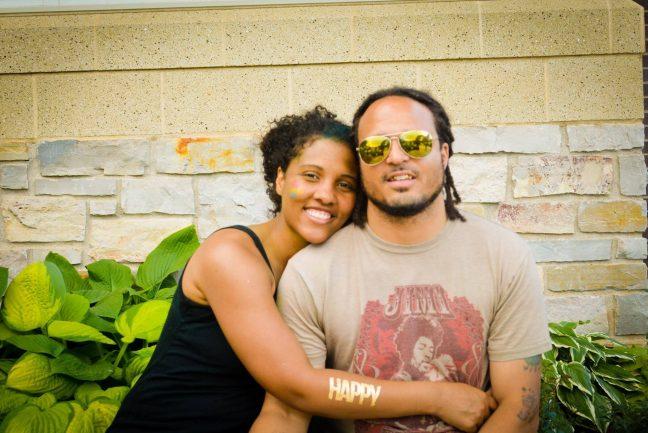Everyone has their own story and deserves to be treated as an individual.
This is the idea behind one Madison couple’s work. Marie and Johnny Justice have always focused on achieving their dreams and being mindful of the people who surround them in society.
The couple are co-creators of Justice and Justice Productions, a film company that specializes in documentaries, photography, branding and using creativity to help drive change.
Both defined social justice as “human justice.” Marie Justice said they focus on people for the lives they live rather than the issues they face. Understanding people’s dreams is a key motive behind their work.
“We call ourselves dreamers,” Johnny Justice said.
Their documentary “Walk a Mile in Their Shoes” is one way the Justices have reached out to the community. The film focuses on individual narratives from people who tend to go unnoticed. The people interviewed describe their stories and their daily problems that are often overlooked.
In photos: #TheRealUW art exhibition raises awareness of marginalized students’ campus experiences
The idea came to the couple when they were at a Black Lives Matter activist group meeting listening to the stories other activists had to share. Marie Justice said they partnered with the Intentionally Welcoming Communities program, a nonprofit organization that built a team to make a community void of fear and identity-based discrimination.
Marie Justice said the couple also ran a photography campaign focused on what public figures like Marilyn Monroe would look like if they were black. Titled “We are Icons,” the campaign is based on the lack of people of color in theater. The Justices have just begun their journey with “We are Icons” and hope to build on it.
“Everybody has a true purpose on this Earth … and we just kind of randomly fell into [filmmaking and photography],” Johnny Justice said.
Johnny Justice said watching a film could help a person empathize with another’s experiences as portrayed in the film, as people do with any form of art. They view art as one of the most influential tools.
UW professor challenges people to rethink realms ‘they thought they knew’
Judith Adrian, professor of integrative studies at Edgewood College, said describing a story through video shines a light on the complexity within social issues such as incarceration. Adrian, who has worked with the Justices for a film adaptation of her book “In Warm Blood,” said the couple’s work added a “human element” to the otherwise political and economic concepts addressed in her book.
“Telling the story — helping people understand the human experiences that are part of all of our social issues — is critical,” Adrian said. “[Films] bring them to life in ways that simply do not always happen when the issues are explored through other lenses.”
Adrian said she uses a “narrative” approach like that of the Justices in her own teaching and work to help express the emotion attached with social issues. She said it is difficult to examine issues like incarceration separately from the emotions attached to them and this kind of approach helps fill the gaps.
Closing gaps: Dane County makes progress since 2013 racial disparity report
The Justices said their upcoming film looks to shine a light on the hidden elements of Madison’s courts. Through this film they want to send a message encouraging social justice and racial equality.
Besides film and photography, the Justices write to empower others. They explained how they are currently “happily” working with youth in the Madison area. They have spoken at Edgewood College and hope to talk to University of Wisconsin students in the near future as well.
Both Justices said they find it most beneficial when speaking to students who have never considered the social differences in society. This is because they have a chance to help those students learn something new.
The simplicity of making a positive influence is one they take seriously. The Justices believe people will always face problems but there is always something that could help them get through difficult times. Marie Justice said it is the small things that matter.
“Everyone has something to give … If I can just help one person, it will create a snowball effect,” Marie Justice said.












